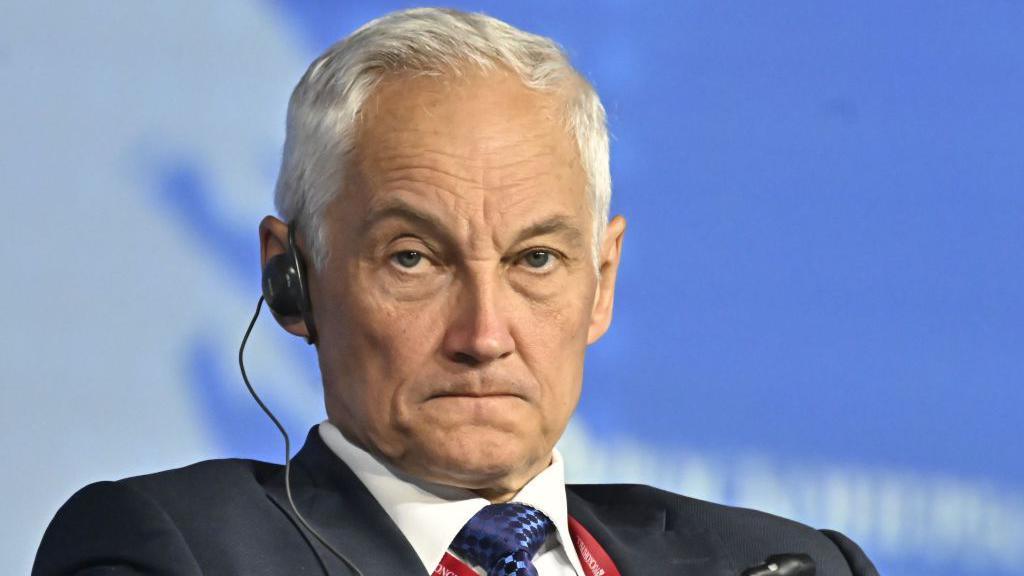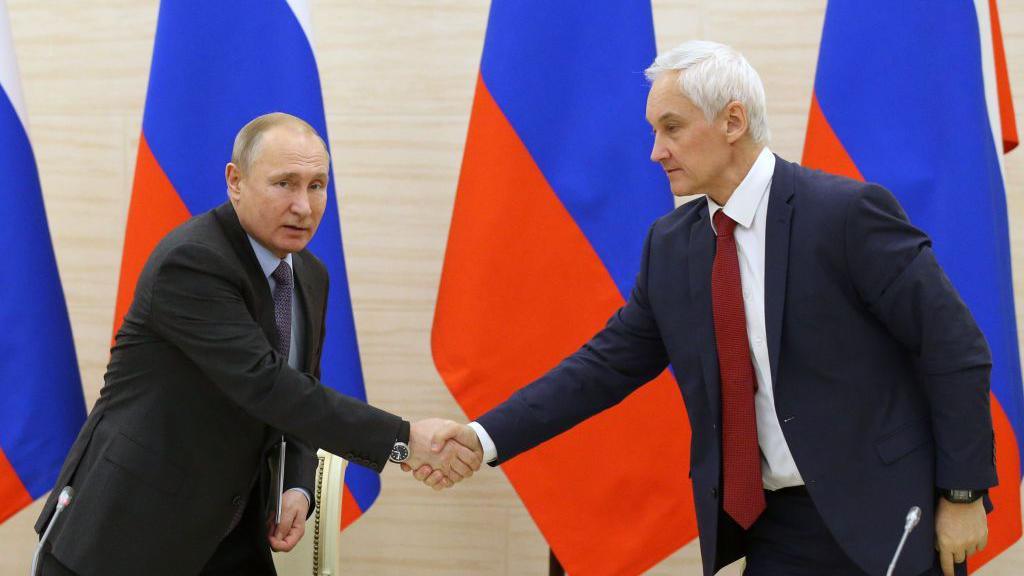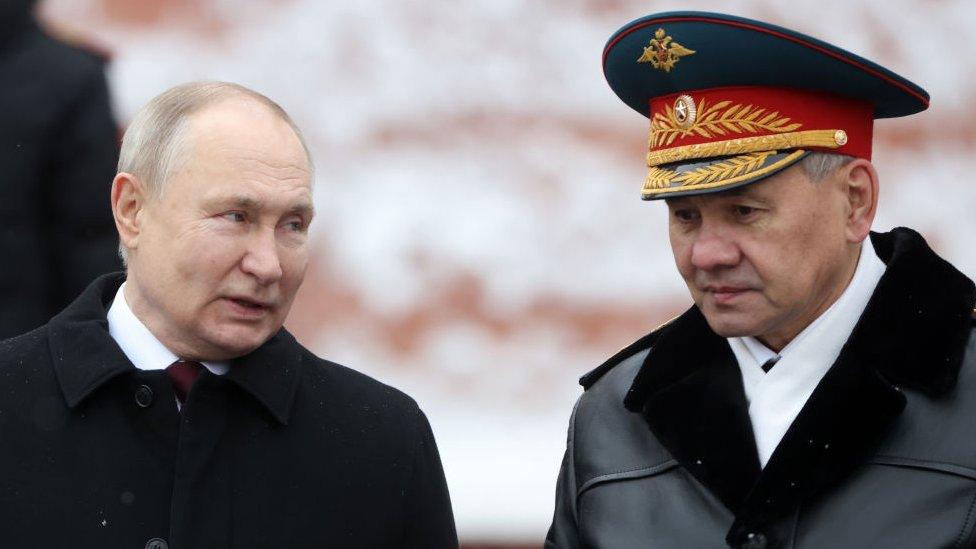Who is Andrei Belousov, Russia's new minister of defence?

Andrei Belousov is a trained economist - and Russia's newest minister of defence
- Published
For the first time in 12 years, Russia has a new minister of defence.
On 12 May, the Kremlin announced that President Vladimir Putin had nominated economist Andrei Belousov to replace long-serving defence minister Sergei Shoigu.
Although there had long been rumours that a reshuffle was on the cards, few were expecting Mr Putin to pick a civilian with no background in either the military or the security services to replace Mr Shoigu.
Andrei Removich Belousov was born on 17 March 1959 in Moscow to Rem, an economist, and Larisa, a radiochemist.
He obtained a degree in economics from Moscow State University in 1981 and pursued a career in academia for a number of years. In the late 1990s, he started working as adviser to Russian prime ministers while working towards a PhD, which he obtained in 2006.
He was appointed minister for economic development in 2012; the following year, he became an aide to Mr Putin.
In 2020, he was appointed first deputy prime minister of Russia. He has since gained a reputation as a Putin loyalist, having reportedly been the only member of the president’s "economic entourage" to support Russia’s 2014 annexation of Crimea.
He is also credited with devising key economic ideas pursued by the Kremlin in recent years, and was seen as one of the key ideologues behind a set of ambitious plans adopted by Mr Putin as he began his fourth presidential term in 2018.
He was also a key backer of the VAT increase from 18 to 20% in 2019.
Mr Belousov is known to be a hardline defender of state interests over those of businesses. He has long advocated strict regulation, increased government investment and extensive state presence in the economy.
In 2018, a letter was leaked in which Mr Belousov suggested seizing excess profits from 14 large metallurgical and chemical companies.

The proposal received widespread criticism. Russia’s Union of Industrialists and Entrepreneurs warned that this would lead to a wave of bankruptcies, and although the suggestion was never implemented, it caused a slump in the stock market.
In 2021, comments by Mr Belousov again led to a collapse in shares of metallurgical companies after he said metallurgists had “extorted” the state for about 100bn rubles (£870m).
Unpopular as these initiatives may have been, they matched Mr Belousov’s core belief that the economy is driven by state involvement.
Russian economist and University of Chicago professor Konstantin Sonin told the BBC that Mr Belousov keenly believes “innovation happens because the government invests in innovation, and that economic growth happens because the government forces businesses to make investments".
These beliefs are consistent with Mr Putin's state-dominant and isolationist worldview, Mr Sonin added.
Kremlin spokesman Dmitry Peskov said the proposed appointment of a civilian showed the role of defence minister called for "innovation".
"The one who is more open to innovations is the one who will be victorious on the battlefield," he said.
As defence minister, Mr Belousov will have to manage Russia’s military spending, which as of 2024 accounts for about 30% of Russia’s budget – about 36.6tn rubles (£324bn).
Commenting on the nomination, Russian outlet Komsomolskaya Pravda said that Mr Belousov’s economic expertise and understanding of industrial sectors, including defence meant he is well-suited to manage the military's significant budgetary demands.
Mr Belousov’s nomination – which comes deep into the third year of Russia’s war in Ukraine - also seems to indicate that President Putin is preparing for a long and expensive war.
Mr Belousov’s task will be to ensure the Russian economy can continue to sustain its military machine despite Western sanctions.
The Kremlin will also be hoping that Mr Belousov’s experience as an economist will help make military spending more efficient and reduce corruption.
His well-established interest in hi-tech weaponry such as drones – of which Russia needs a near-constant supply to continue its attacks on Ukraine - will also be useful.
In 2023, Mr Belousov announced plans to build 18,000 large and medium-sized drones in 2024 and the launch and development of a new industry – manufacturing of unmanned aviation systems.
Russian media have noted that Mr Belousov - who is married with one child, Pavel, born in 1994 - also cuts an usual figure among its peers within the Russian government as he is not known to have profited from corruption, nor does he have a particularly lavish lifestyle.
Like President Putin, Mr Belousov is close to the Russian Orthodox Church. He is thought to have been baptised in 2007.
He is said to be a martial arts enthusiast - as is President Putin - who practised karate and the Russian combat sport sambo in his youth.
Additional reporting by Vitaly Shevchenko
Related topics
- Published13 May 2024
